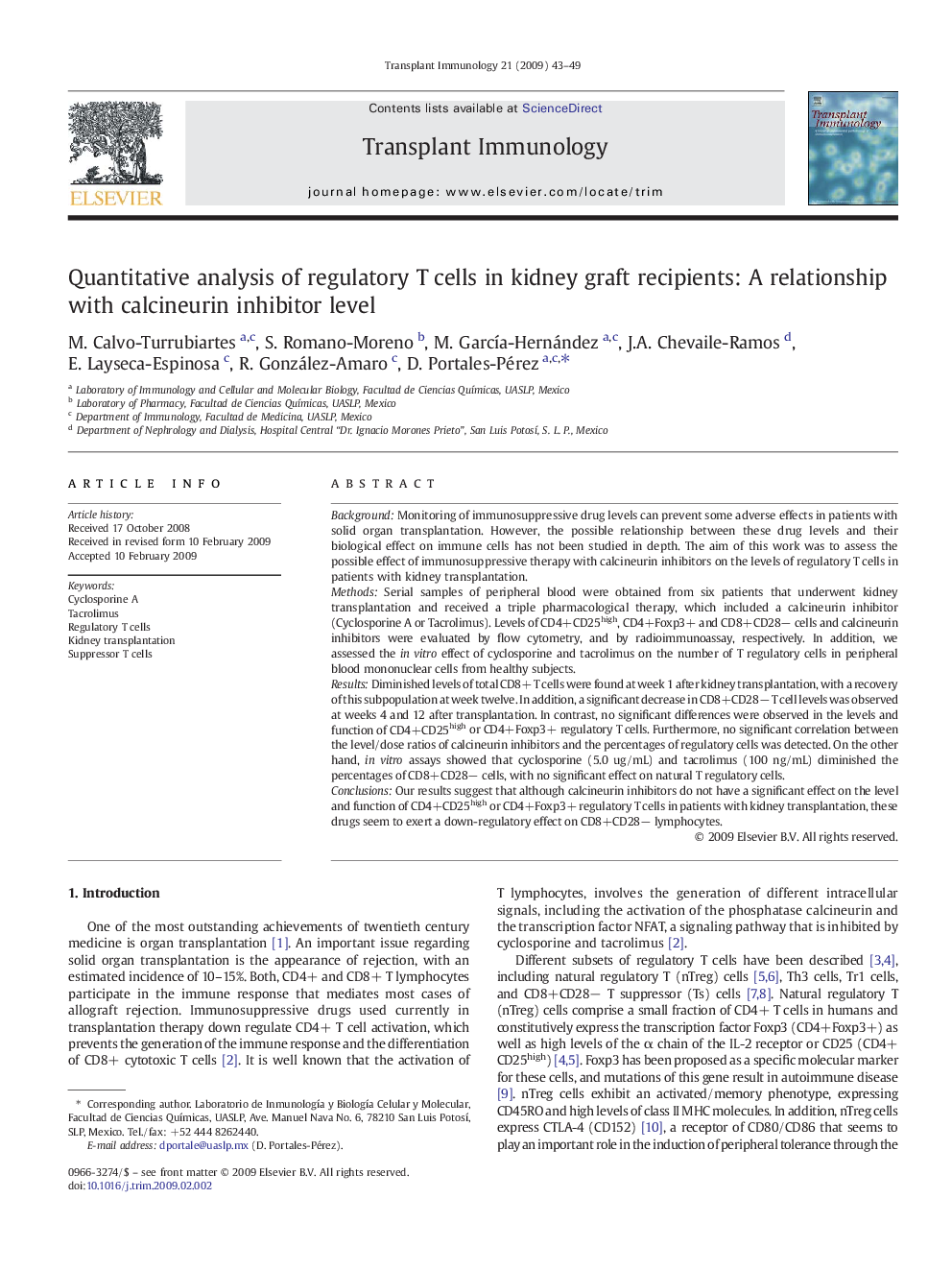| Article ID | Journal | Published Year | Pages | File Type |
|---|---|---|---|---|
| 3392331 | Transplant Immunology | 2009 | 7 Pages |
BackgroundMonitoring of immunosuppressive drug levels can prevent some adverse effects in patients with solid organ transplantation. However, the possible relationship between these drug levels and their biological effect on immune cells has not been studied in depth. The aim of this work was to assess the possible effect of immunosuppressive therapy with calcineurin inhibitors on the levels of regulatory T cells in patients with kidney transplantation.MethodsSerial samples of peripheral blood were obtained from six patients that underwent kidney transplantation and received a triple pharmacological therapy, which included a calcineurin inhibitor (Cyclosporine A or Tacrolimus). Levels of CD4+CD25high, CD4+Foxp3+ and CD8+CD28− cells and calcineurin inhibitors were evaluated by flow cytometry, and by radioimmunoassay, respectively. In addition, we assessed the in vitro effect of cyclosporine and tacrolimus on the number of T regulatory cells in peripheral blood mononuclear cells from healthy subjects.ResultsDiminished levels of total CD8+ T cells were found at week 1 after kidney transplantation, with a recovery of this subpopulation at week twelve. In addition, a significant decrease in CD8+CD28− T cell levels was observed at weeks 4 and 12 after transplantation. In contrast, no significant differences were observed in the levels and function of CD4+CD25high or CD4+Foxp3+ regulatory T cells. Furthermore, no significant correlation between the level/dose ratios of calcineurin inhibitors and the percentages of regulatory cells was detected. On the other hand, in vitro assays showed that cyclosporine (5.0 ug/mL) and tacrolimus (100 ng/mL) diminished the percentages of CD8+CD28− cells, with no significant effect on natural T regulatory cells.ConclusionsOur results suggest that although calcineurin inhibitors do not have a significant effect on the level and function of CD4+CD25high or CD4+Foxp3+ regulatory T cells in patients with kidney transplantation, these drugs seem to exert a down-regulatory effect on CD8+CD28− lymphocytes.
